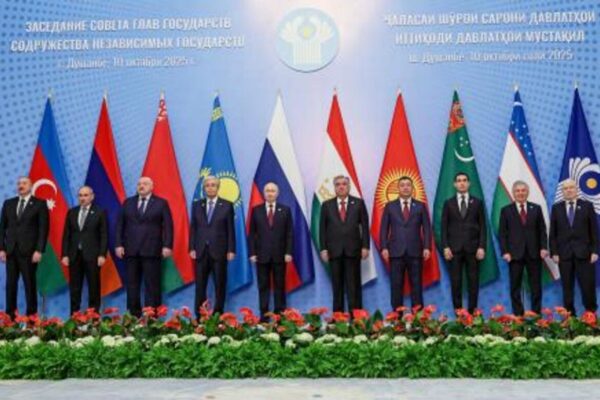Impact of Global Currency on World Economic Dynamics
Impact of Currency on Trade
The relationship between currency value and trade is pivotal in shaping international economic interactions. A strong currency can enhance a nation’s purchasing power, making imports cheaper and thus stimulating consumer demand for foreign goods. Conversely, when a currency weakens, exports may become more competitive as foreign buyers find local products more affordable. This dynamic invariably influences trade balances and can lead to shifts in market strategies by businesses across borders. Furthermore, fluctuations in currency rates compel nations to adopt various monetary policies to safeguard their economic interests. By understanding the nuanced effects of currency on trade, nations can better navigate the complexities of global markets and maintain robust economic ties, ultimately fostering a climate conducive to sustainable growth.

Role of Currency in Economy
Currency acts as the backbone of economic activity, facilitating trade and investment among nations. When a currency is stable and widely accepted, it enhances trust and encourages transactions, leading to increased economic growth. For instance, countries with strong currencies often find it easier to attract foreign investments, which boosts domestic production capabilities. Moreover, the ability of a currency to accurately reflect a nation’s economic health is crucial; fluctuations can trigger shifts in consumer confidence and spending habits. In this context, central banks play a vital role by managing interest rates and money supply to stabilize their currencies. Such interventions are essential in preventing speculative attacks that can destabilize the economy. As nations navigate the complexities of globalization, the dynamics of currency influence not only trade relationships but also governance policies aimed at ensuring economic stability.
Fluctuations and Financial Stability
Fluctuations in global currency values directly affect financial stability across nations. When a currency’s value experiences significant changes, it can lead to uncertainty in investment and trade, impacting overall economic confidence. For instance, a rapid depreciation of a currency may make imports more expensive, causing inflation and affecting consumer purchasing power. As illustrated in the table below, the correlation between currency value fluctuations and inflation rates can be profound.
| Currency Pair | Fluctuation (%) | Inflation Rate (%) |
|---|---|---|
| USD/EUR | 5 | 3.2 |
| JPY/GBP | 7 | 2.9 |
| AUD/CNY | 4 | 1.5 |
Moreover, financial institutions closely monitor these fluctuations as they can influence interest rates and borrowing costs. As the economist John Maynard Keynes notably stated, “The market can remain irrational longer than you can remain solvent,” highlighting the challenges that volatility presents to financial stability. Companies engaged in international trade must adopt robust risk management strategies to mitigate exposure to these fluctuations.> Keeping currency risks in check is vital for maintaining both operational stability and long-term growth in an ever-changing economic landscape.
Global Currency Influences Nations
The influence of global currency extends far beyond simple trade transactions; it significantly affects how nations interact economically on a broader scale. A strong global currency can enhance a country’s purchasing power, enabling it to engage more effectively in international trade and attract foreign investments. Conversely, fluctuations in currency values can create volatility, which in turn may deter investors and destabilize regional economies. Additionally, nations with weaker currencies may struggle to import essential goods, leading to inflationary pressures and reduced consumer confidence. As nations navigate these complexities, they must adopt strategic measures to manage their currencies effectively, ensuring stability while fostering an environment conducive to growth and prosperity. Furthermore, the interplay between local economic conditions and global currency trends often dictates policy decisions that shape the financial landscape of countries worldwide. This dynamic relationship underlines the necessity for nations to remain vigilant and responsive to shifts in global currency values as they pursue sustainable economic development.
Economic Dynamics and Currency Trends
Currency trends play a crucial role in shaping the economic dynamics of nations across the globe. As exchange rates fluctuate, they have a direct impact on trade balances, influencing export and import activities. For instance, a stronger currency can make a nation’s goods more expensive abroad, potentially resulting in decreased demand from foreign markets. Conversely, a weaker currency can enhance competitiveness by making exports more appealing. Furthermore, currency trends are closely linked to inflation rates and interest rates, which can alter consumer behavior and investment priorities. These interconnected relationships highlight the need for nations to adapt their economic policies in response to rapid fluctuations in currency values. Thus, understanding these trends is essential for policymakers and businesses alike to navigate the complexities of international trade effectively.
Trade Relationships and Currency
The interplay between trade relationships and currency is critical in shaping global economic landscapes. A stable currency fosters trust among trading partners, facilitating smoother transactions and encouraging cross-border commerce. Conversely, currency volatility can disrupt trade flows, as businesses face uncertainty regarding future exchange rates. For instance, a sudden depreciation of a country’s currency may make its exports more competitive by lowering prices abroad. However, this same fluctuation can increase import costs, potentially leading to trade imbalances. Moreover, nations often adapt their trade strategies in response to currency fluctuations; they may seek to diversify their trading partners or hedge against risks associated with adverse exchange rate movements. Understanding these dynamics enables countries to formulate effective economic policies that bolster their competitive edge in the global market.
The Link Between Currency Fluctuations
Currency fluctuations play a pivotal role in shaping economic landscapes across nations. When a currency strengthens, it typically makes goods and services more expensive for foreign buyers, potentially leading to reduced exports and trade deficits. Conversely, a weaker currency can enhance a country’s export competitiveness, fostering economic growth. Furthermore, these fluctuations are influenced by various factors, including interest rates, inflation, and geopolitical events. As nations react to these changes, they may adjust their monetary policies to stabilize their financial systems and maintain investor confidence. Such dynamics not only affect individual economies but also create ripple effects in global markets, influencing trade relationships and ultimately impacting national prosperity. Understanding these connections is essential for policymakers and businesses as they navigate the complexities of the global economic environment.
Nations’ Prosperity and Foreign Trade
The interplay between a nation’s prosperity and its foreign trade activities is profoundly influenced by global currency dynamics. When a country possesses a strong currency, it enhances its purchasing power in international markets, enabling access to a wider array of imported goods and services at favorable prices. Conversely, fluctuations in currency values can lead to increased costs for imports and reduced competitiveness for exports. As nations engage in trade, currency valuation directly affects trade balances; a stronger local currency may discourage export-oriented businesses due to elevated pricing for foreign buyers. Additionally, countries with fluctuating currencies may face uncertainty in their trade relationships, prompting shifts in how businesses strategize their international dealings. Therefore, maintaining exchange rate stability becomes paramount for governments aiming to bolster their economic prosperity through sustained foreign trade engagement.
You may also like

「CISプラス」創設で合意 プーチン氏ら、旧ソ連の首脳会議

Impact of the De Minimis Exemption on U.S. Imports Explained

参考资料
You may be interested
Transformative Leadership Practices of the Target CEO
Transformative Leadership Skills Transformative leadership skills are essential in today's...
Experience the Unique Charm and Thrills of Jackson Hole
The Enchantment of Jackson Hole Nestled amidst the breathtaking Teton...
Walmart Stock Performance Insights and Future Outlook
Walmart Stock Historical Trends Walmart's stock performance has displayed a...
 The New York Times
The New York Times
- Why the Carney Fire Is Still Burning 2026 年 1 月 25 日 Ezra Klein
- Alex Honnold Climbs Taipei 101 Skyscraper in Taiwan 2026 年 1 月 25 日 John Yoon
- The Woman Who Stands Between Donald Trump and Greenland 2026 年 1 月 25 日 Jeffrey Gettleman and Maya Tekeli
- State Terror Has Arrived 2026 年 1 月 25 日 M. Gessen
- Pat Montandon, Socialite Who Sought Publicity, and Then World Peace, Dies at 96 2026 年 1 月 25 日 Penelope Green
- Trump Threatens Canada With Tariffs as Post-Davos Fallout Continues 2026 年 1 月 25 日 Matina Stevis-Gridneff
- Alex Jeffrey Pretti Knew He Wanted to Help Others 2026 年 1 月 25 日 Corina Knoll, Julie Bosman and Maia Coleman
- New York’s Latest Forecast Shows Heavy Snow, Then Sleet 2026 年 1 月 25 日 Amy Graff
- Democrats Running for U.S. Senate in Texas Call for Overhaul of ICE 2026 年 1 月 25 日 J. David Goodman
- Scenes From the Winter Storm 2026 年 1 月 24 日 The New York Times
Leave a Reply